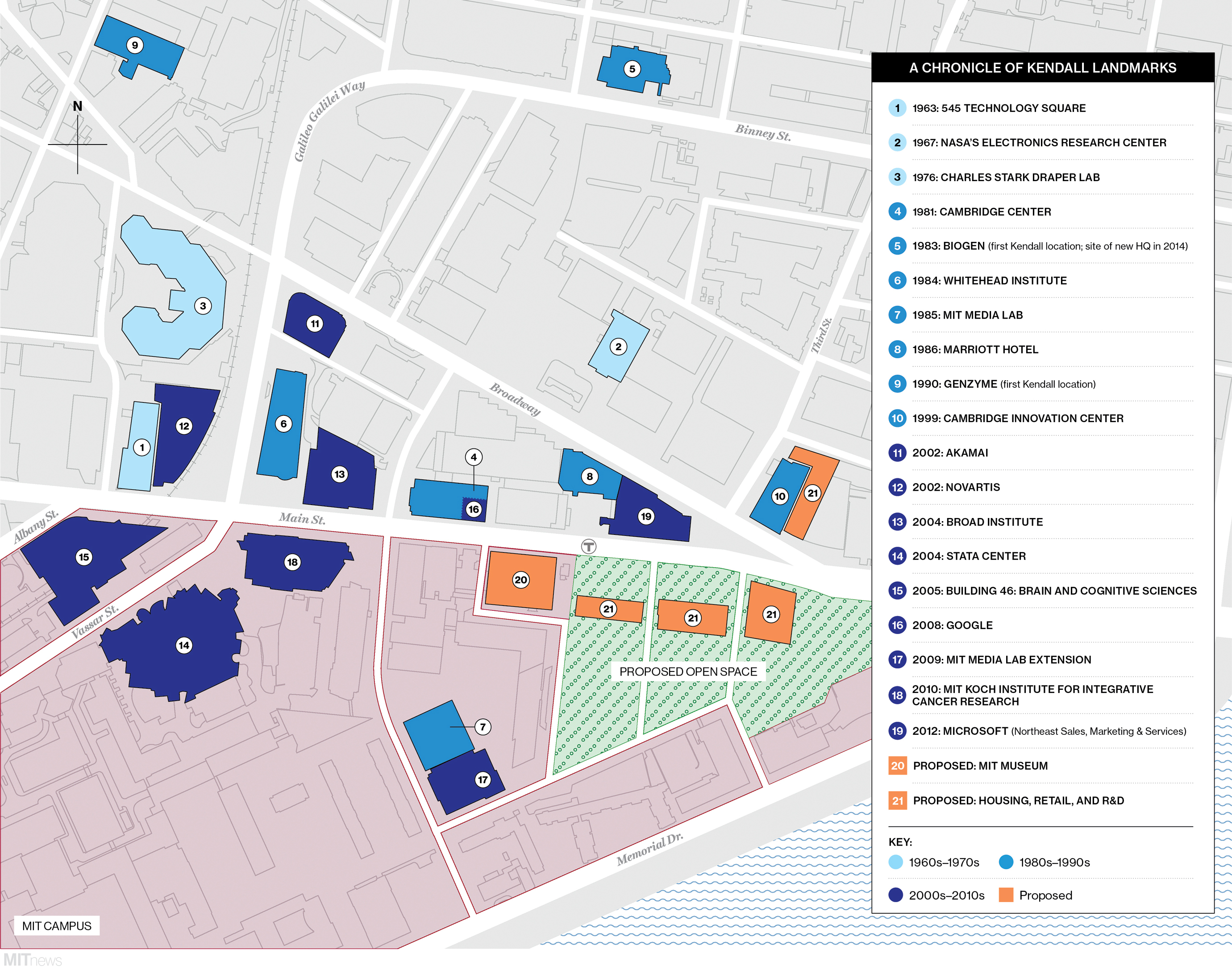Mapping the Changes in Kendall Square
since the 1960s.

In 1963, on the site of the old Lever Brothers soap factory, MIT opened the first building in a modern office complex known as Technology Square. The utilitarian structure would house MIT’s computing pioneers for more than four decades. Its construction also represented a first step in turning Kendall Square into a hotbed of innovation.
The transformation came in fits and starts. Not long after Tech Square debuted, NASA opened its Electronics Research Center at 55 Broadway, only to move out three years later because of federal budget cuts. Cambridge paved over much of the large parcel of land cleared for the space agency and began the slow process of courting developers. Although Draper Laboratory, which had spun out of MIT, moved into Tech Square in 1976, many companies left the city, lured by suburban office parks. So it was big news in 1980 that Boston Properties would break ground on the first office building in the new Cambridge Center development.
In the 1980s, the Kendall Square biotech revolution began. Biogen moved into a warehouse on Binney Street in 1983. The Whitehead Institute, which would help lead the Human Genome Project, arrived in 1984, followed by Genzyme in 1990. Today, the corner of Vassar and Main is a nexus of the life sciences, with the Broad Institute, the McGovern Institute for Brain Research, the Picower Institute for Learning and Memory, the Koch Institute for Integrative Cancer Research, the Whitehead, and Novartis all within shouting distance.
In the late 1990s and 2000s, Kendall Square became the home of high-tech startups like Akamai and lured tech stalwarts like Microsoft and Google. Today many of the nearly 600 startups at the Cambridge Innovation Center at One Broadway are tech companies.Meanwhile, more than 50 Kendall restaurants have opened since 1990. And if MIT’s plan to add housing, retail, office, and R&D space gets approved by the Cambridge Planning Board, can a grocery store be far behind?
Keep Reading
Most Popular
Large language models can do jaw-dropping things. But nobody knows exactly why.
And that's a problem. Figuring it out is one of the biggest scientific puzzles of our time and a crucial step towards controlling more powerful future models.
How scientists traced a mysterious covid case back to six toilets
When wastewater surveillance turns into a hunt for a single infected individual, the ethics get tricky.
The problem with plug-in hybrids? Their drivers.
Plug-in hybrids are often sold as a transition to EVs, but new data from Europe shows we’re still underestimating the emissions they produce.
Stay connected
Get the latest updates from
MIT Technology Review
Discover special offers, top stories, upcoming events, and more.